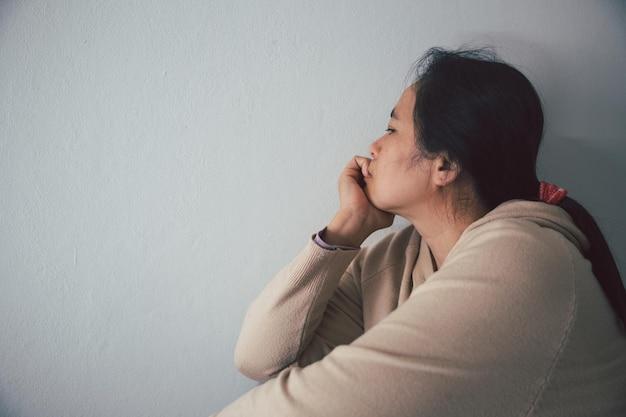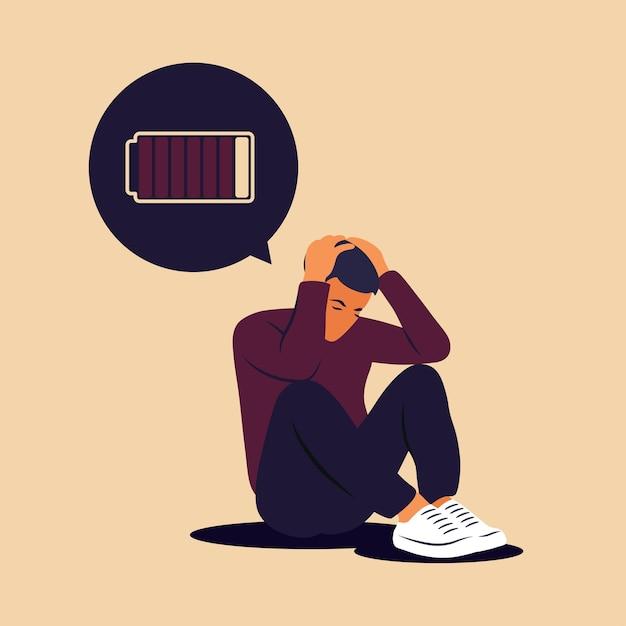Are dismissive avoidants selfish in relationships? This is a question that many people who have experienced interactions with dismissive avoidant partners may ask themselves. Dismissive avoidant attachment is a common attachment style characterized by emotional distance, self-reliance, and a fear of intimacy. Individuals with this attachment style often struggle with forming deep connections and may come across as aloof or detached.
In this blog post, we will delve into the world of dismissive avoidants, exploring their behaviors, fears, and triggers. We will also address common questions such as why dismissive avoidants leave, how to communicate with them, and whether no contact works. So, if you have ever been in a relationship with a dismissive avoidant or are interested in learning more about attachment styles, keep reading!

Are Dismissive Avoidants Selfish
When it comes to understanding the complexities of human behavior, it’s important to explore popular psychological concepts like attachment styles. One such style is the dismissive avoidant, characterized by a fear of intimacy and a tendency to distance themselves emotionally. But a question that often arises is whether dismissive avoidants are truly selfish individuals. Let’s delve deeper into this topic and shed some light on the matter.
Understanding Dismissive Avoidance
To grasp the behavior of dismissive avoidants, it’s crucial to comprehend their attachment style. Dismissive avoidants typically develop a defensive coping mechanism due to past experiences or traumas. They prioritize independence and self-reliance, often suppressing their emotional needs to maintain a sense of control. This attachment style might lead others to perceive them as selfish, but is that really the case?
The Misinterpretation of Self-Preservation
Dismissive avoidants’ strong inclination toward self-preservation can be mistaken for selfishness. However, it’s crucial to distinguish between prioritizing one’s well-being and intentionally causing harm or emotional distress to others. These individuals have learned to shield themselves from vulnerability to safeguard their own emotional stability, often resorting to emotional distance as a protective measure.
Emotional Unavailability vs. Selfishness
While dismissive avoidants may appear emotionally unavailable at times, it’s important to recognize that this behavior stems from their attachment style rather than any intentional desire to harm others. They may struggle to express affection or openly communicate their feelings due to their fear of dependency. It’s vital to remember that these behaviors are defense mechanisms, not selfish acts.
The Importance of Empathy and Understanding
It’s important not to oversimplify or judge dismissive avoidants based solely on their behavior. Practicing empathy and understanding can help unravel the reasons behind their actions. Acknowledging the underlying fears and insecurities of these individuals can provide valuable insights into their responses to emotional closeness. By extending understanding, we can bridge the gap between dismissive avoidants and those who seek deeper connections.
The Potential for Growth and Change
Instead of labeling dismissive avoidants as inherently selfish, it is essential to recognize their potential for growth and change. With self-awareness and therapy, individuals with this attachment style can develop healthier coping mechanisms and learn to navigate intimate relationships more effectively. Overcoming deep-rooted fears requires commitment and effort but can lead to personal growth and the ability to form more meaningful connections.
Embracing Compassion and Patience
In conclusion, it’s essential not to hastily judge dismissive avoidants as selfish individuals. Their attachment style and self-protective behaviors may give off that impression, but it’s important to remember the underlying reasons behind their actions. By embracing compassion, patience, and understanding, we can create a more empathetic society that fosters growth and healing for dismissive avoidants and those who encounter them.

FAQ: Are Dismissive Avoidants Selfish
What Triggers a Partner with Dismissive Avoidant Attachment
Partners with dismissive avoidant attachment are triggered by the fear of intimacy and emotional vulnerability. They often have a deep-rooted fear of dependence and being controlled by others. When their partner tries to get closer or express their emotions, it can activate their avoidance strategies and cause them to distance themselves.
Why Do Dismissive Avoidants Leave
Dismissive avoidants may leave relationships due to their discomfort with emotional intimacy. They struggle to handle the emotional demands of a relationship and may feel overwhelmed when their partner seeks emotional connection. Leaving can provide them with a sense of independence and relief from potential emotional entanglement.
How Do You Communicate with a Dismissive Avoidant
Communicating with a dismissive avoidant can be challenging but not impossible. It’s essential to respect their need for space and autonomy while also creating opportunities for open and honest dialogue. Avoid pressuring them to disclose their feelings, as it can trigger their avoidance. Instead, focus on finding a balance of independence and connection in the relationship.
Does No Contact Work on Dismissive Avoidants
While a period of no contact can allow both partners to reflect on their emotions and needs, it may not have the desired effect on a dismissive avoidant. Dismissive avoidants are less likely to actively pursue contact or reconciliation. They may view the break as an opportunity to further distance themselves emotionally, making it important to assess the effectiveness of no contact in their case.
Are Avoidants Cruel
Avoidants are not intentionally cruel, but their avoidance strategies can sometimes come across as cold or indifferent. Their fear of intimacy and emotional vulnerability can make it challenging for them to express empathy and connect with others’ emotions. However, it’s important to remember that their behavior stems from their attachment style and not from a desire to intentionally hurt others.
What Are Dismissive Avoidants Afraid Of
Dismissive avoidants are afraid of emotional vulnerability and dependence on others. They fear losing their independence and being controlled or engulfed by their partner. This fear often leads them to downplay or dismiss their own emotions and distance themselves from intimate relationships to protect their sense of autonomy.
How Do You Manipulate a Dismissive Avoidant
It’s important to focus on healthy and respectful communication rather than manipulation when dealing with a dismissive avoidant. Manipulative tactics can create further emotional distress and damage trust in the relationship. Building trust and mutual understanding through open communication can be more effective in fostering a secure connection.
Do Dismissive Avoidants Get Jealous
Dismissive avoidants typically have difficulty expressing jealousy or acknowledging their own emotional needs. Their avoidance strategies make them less likely to openly display or recognize jealousy. However, underlying feelings of jealousy may still exist, even if they are not readily expressed or easily noticed.
Do Dismissive Avoidants Miss You
Dismissive avoidants may struggle to openly admit missing someone due to their fear of emotional vulnerability. However, they may experience a subtle longing for the connection they once had, even if it is not readily evident in their behavior or words. It’s important not to expect overt expressions of missing you from a dismissive avoidant.
How Do You Date a Dismissive Avoidant
Dating a dismissive avoidant requires patience, understanding, and secure attachment. It’s essential to create a safe space where they feel comfortable expressing themselves and to avoid rushing the relationship or overstepping their emotional boundaries. Respecting their independence and communicating clearly about needs and expectations can help foster a healthy relationship.
How Do Dismissive Avoidants Show Love
Dismissive avoidants often struggle to express love through words or overt gestures. Instead, they may demonstrate their love through actions, such as providing support, offering practical help, or showing loyalty. Understanding their attachment style can help interpret their actions as acts of love, even if they are less emotionally expressive.
What Makes an Avoidant Fall in Love
For an avoidant to fall in love, they need to feel a sense of security and have their fears of emotional vulnerability alleviated. Building trust, providing consistency, and respecting their need for independence can create a foundation for them to explore and potentially develop deeper emotional connections.
What Triggers a Dismissive Avoidant
Dismissive avoidants can be triggered when they perceive that their independence or emotional autonomy is being threatened. Any attempts to display vulnerability or dependence can activate their avoidance strategies, causing them to withdraw or distance themselves from the situation.
Can You Be Happy with a Dismissive Avoidant
Being in a relationship with a dismissive avoidant can have its challenges, but it is possible to find happiness with them. It requires understanding their attachment style, effective communication, and creating a balance between independence and intimacy. If both partners are willing to put in the effort to meet each other’s emotional needs, happiness can be achieved.
How Do You Make an Avoidant Chase You
Rather than trying to make an avoidant chase you, focus on building a secure and healthy connection. This involves creating trust, enhancing communication, and fostering emotional intimacy. By consistently meeting their emotional needs and showing respect for their need for independence, you can encourage their interest and commitment.
What Do Dismissive Avoidants Want
Dismissive avoidants want autonomy and independence while maintaining a sense of connection. They desire relationships that don’t feel too engulfing or demanding emotionally. They value their personal space and freedom and seek partners who can respect their need for individuality while also nurturing a secure and supportive bond.
Do Dismissive Avoidants Have Friends
Dismissive avoidants can have friendships but may prefer fewer, less intense relationships. They are selective about who they allow into their inner circle and may prioritize quality over quantity when it comes to friendships. Their avoidant tendencies can make it challenging for them to form deep emotional connections with others.
Are Dismissive Avoidants Aware
Dismissive avoidants are often aware of their avoidance strategies and defense mechanisms. They may have a deep understanding of their fear of emotional vulnerability and their tendency to distance themselves. However, it may take self-reflection and introspection for them to recognize how their attachment style impacts their relationships.
What Do You Do When a Dismissive-Avoidant Pushes You Away
When a dismissive-avoidant pushes you away, it’s important to respect their need for space and independence. Avoid pressuring or becoming overly reactive, as it can intensify their avoidance. Give them time to process their emotions and create opportunities for open communication without being forceful. Balancing your own needs with theirs is key in navigating this challenging situation.
How Do You Know if a Dismissive Avoidant Loves You
Recognizing love in a dismissive avoidant can be challenging. Look for subtle signs of affection, such as acts of service or support. They may prioritize your well-being and demonstrate loyalty in their own unique way. While they may struggle to express love overtly, their actions can still convey their deep feelings.
How Do Dismissive Avoidants Act in Relationships
Dismissive avoidants often act by maintaining emotional distance and independence in relationships. They may avoid expressing their own emotions and have difficulty providing emotional support to their partner. They are more comfortable focusing on practical aspects of the relationship rather than engaging in deep emotional connections.
Do Dismissive Avoidants Have High Self-Esteem
Dismissive avoidants often project an air of self-assuredness and confidence, which can be perceived as high self-esteem. However, their self-esteem is often fragile, as it is reliant on maintaining a sense of independence and avoiding emotional vulnerability. Underneath their defensiveness, they may harbor insecurities about their own worthiness of love and acceptance.
Disclaimer: The information provided in this article is for informational purposes only and should not be considered as professional advice. Understanding and addressing dismissive avoidant attachment may require the guidance of a qualified mental health professional.